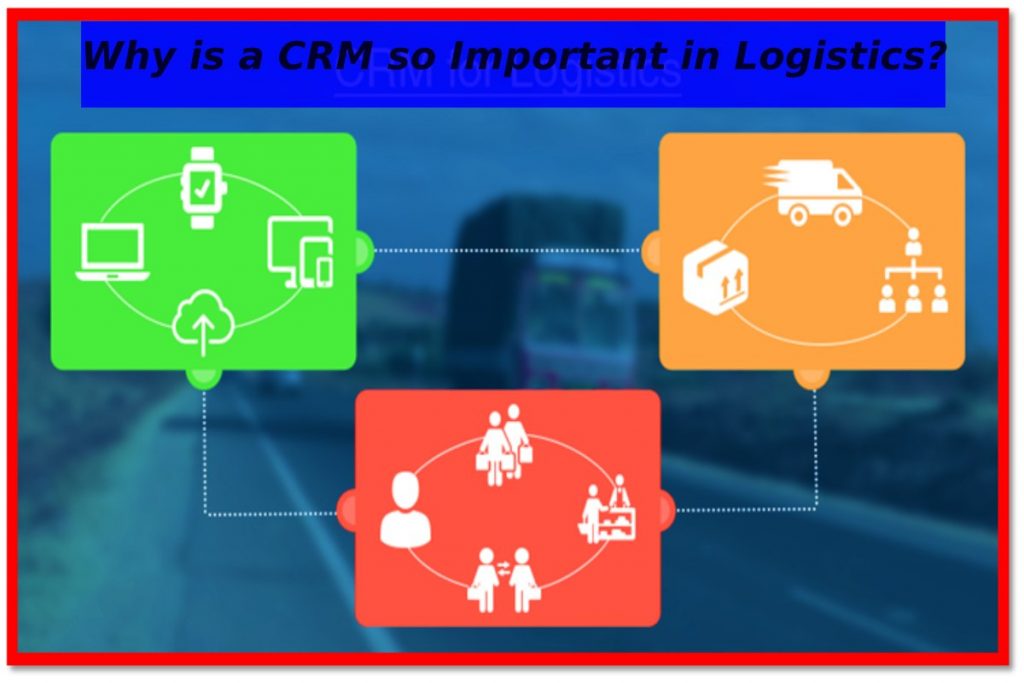Table of Contents
CRM in Logistics
CRM in Logistics – The client/consumer has radically increased its importance in the logistics sector scheme. So it seems logical and understandable that the sector professionals have broadened their sights to apply new tools and solutions to improve customer service. And care given to the client, their needs, and decisions. This is the starting point and birth of CRM in logistics.
How do we Understand CRM in Logistics?
Considering the English words that originated the acronym, CRM refers to Customer Relationship Management, translated as customer relationship management. However, this is still a phrase with a very general meaning that does not narrow the scope of the tools too much.
Currently, we must understand CRM as a professional philosophy adopted by companies that seek to make use of the possibilities offered by the technological world to get closer to its customers and be able to satisfy their needs in the best possible way.
Objectives to be Met by the CRM
The success of CRM in the current scenario is overwhelming, as reflected in a study by Cap Gemini Ernst & Young that highlights that 67% of companies in the sector already have professionals and plans focused on CRM among their ranks. In general, we are talking about a philosophy that has shifted attention from the product to the customer. We could even say that CRM is part of one of the eight keys to digitizing logistics that will make your company take off.
Now the consumer “is king,” and as such, we must meet their needs taking into account the following:
- To offer products that meet the needs of our customers, we must take into account their intelligence, knowledge, and customs.
- The communication process evolves from the traditional monologue to dialogue.
- Customer loyalty will always be much more profitable than acquiring new customers. We must think about the long-term customers.
- Communication with the client must be personalized since the personalization of the message, in substance and form. Dramatically increases the effectiveness of communication actions.
Suppose we eliminate this patina of technicality and specialization to understand the objective of CRM truly. In that case, we must think that companies seek to establish the closeness that we could previously find in the corner fishmonger with the client. But of course, the 50 clients that the fishmonger could have are not the same as the 50,000 or 5 million that a large global company can count on.
Facing the CRM Philosophy in Logistics
In the current framework, the CRM must find the tools and objectives to achieve that personalization on significant audiences. In other words, you must be very clear about the possibilities that you can use to overcome this duality established between a large number of clients and the uniqueness of personalizing our message for each one of them.
Among the list of points to fulfill or strategies on which to rely, we can rescue the following:
- Increase sales (increase sales to current customers as cross-sell)
- Maximize the information we have about the client
- Identify new business opportunities
- Improve customer service
- Work to have optimized and personalized processes
- Cost reduction
- Identify potential customers for the company
- Build customer loyalty
The CRM at the Service of the Company
The philosophy of using CRM in logistics is on the rise in the sector. With every minute that passes, the number of professionals who discover its potential and trust it increases. However, no matter how powerful this type of tool may seem to us now. We must in no way subordinate our company’s global strategy to what we can achieve with CRM.
The techniques that we obtain from this work must be incorporated coherently into the company’s global strategy by workers who understand its use and objectives. Nor should we forget the processes that have been established in the workflow since the arrival of CRM can help us redefine and optimize them. Whatever the size of our company, we will find CRM solutions to suit you, and knowing how to identify them can also mean the difference between success and failure.
The Use of CRM to Control the Famous Cold Calling
Everyone knows that cold calls are part of any commercial department, whatever its sector. As we recently discussed in the article published in Internationally on improving efficiency in the logistics sector. The combination of these commercial actions and the collection of information in our CRM can radically increase control and subsequent analysis professionalizing the sales process.
